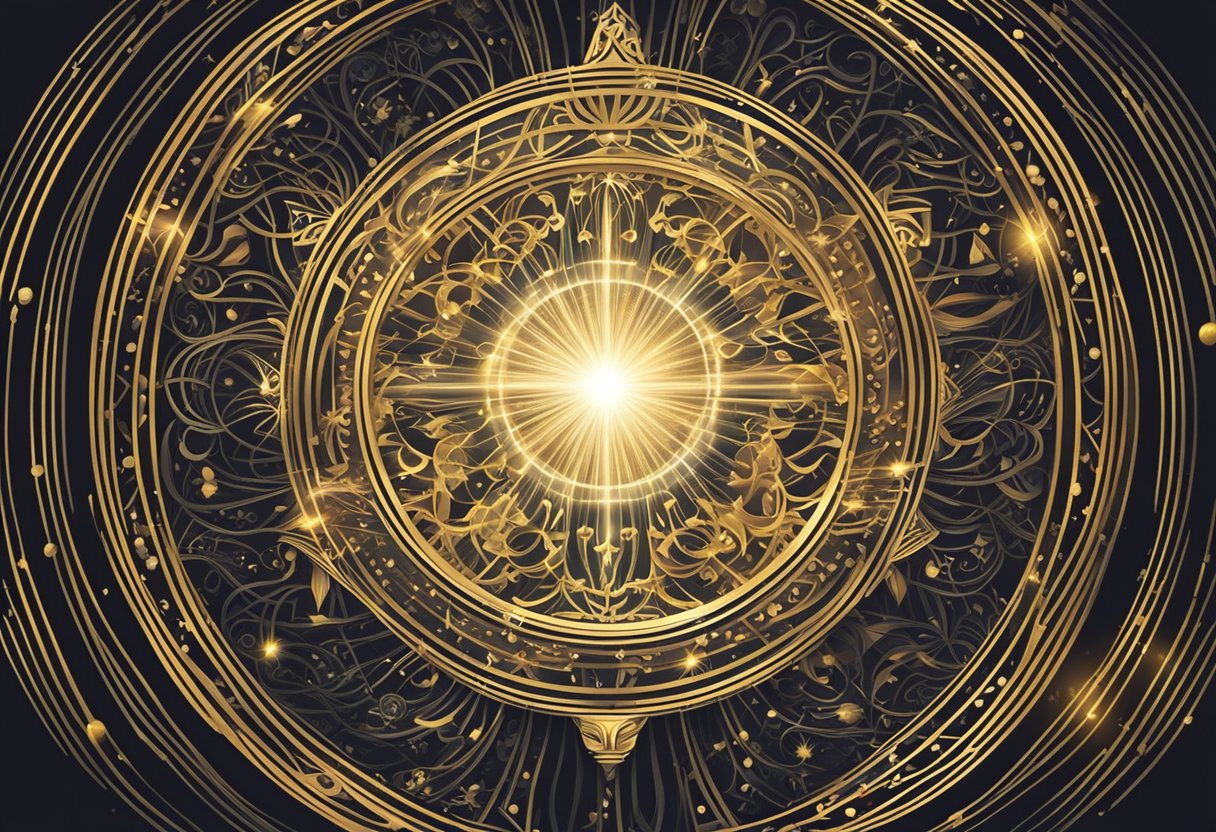The term “Divine Moments of Truth” has become a popular phrase among those who have experienced profound spiritual or psychedelic experiences. The phrase was made famous by the electronic music group Shpongle, who released a track by the same name in 1998. The song’s lyrics invite listeners on an introspective journey through its captivating lyrics, unraveling the profound messages hidden within.
The meaning behind the phrase “Divine Moments of Truth” is often associated with the use of psychedelic substances like DMT, which can lead to moments of profound, ineffable insight. These experiences are often described as encounters with bizarre and otherworldly landscapes, and a general dissolution of the boundaries between self and the universe. However, the phrase can also refer to any moment of profound spiritual insight or realization, regardless of whether it was induced by a psychedelic substance.
While the term “Divine Moments of Truth” may have originated in the context of psychedelic experiences, its meaning has evolved to encompass a wide range of spiritual and philosophical concepts. The phrase has become a shorthand for any moment of profound insight or realization, whether it is induced by a psychedelic substance or not.
Defining Divine Moments of Truth

Divine moments of truth are those critical moments in a person’s life when they experience a profound spiritual awakening or realization. These moments are often characterized by a sense of clarity, purpose, and direction that guides the individual towards a deeper understanding of their relationship with the divine.
At their core, divine moments of truth are moments of revelation, where the individual is able to see beyond the mundane and into the divine. These moments can take many forms, from a sudden flash of insight to a prolonged period of contemplation and introspection.
One of the key characteristics of divine moments of truth is that they are deeply personal and subjective. What may be a transformative moment for one person may be insignificant to another. As such, it is important for individuals to be open and receptive to these moments, and to allow them to guide their spiritual journey.
Overall, divine moments of truth can be seen as a powerful tool for spiritual growth and development. By embracing these moments and allowing them to guide their journey, individuals can deepen their relationship with the divine and gain a greater understanding of their place in the world.
Historical Context of the Concept

Religious Origins
The concept of divine moments of truth has its roots in religious experiences and traditions. Many religions believe in the existence of a higher power or deity that can reveal itself to individuals through moments of divine inspiration or revelation. In Christianity, for example, the apostle Paul had a vision of Jesus on the road to Damascus that transformed his life and led him to become a missionary. Similarly, the prophet Muhammad received revelations from Allah that formed the basis of the Islamic religion.
Philosophical Perspectives
The concept of divine moments of truth has also been explored in philosophical thought. In ancient Greek philosophy, for example, Plato believed that knowledge of the Forms (abstract concepts such as beauty, justice, and truth) could only be attained through divine inspiration or revelation. In more recent times, the philosopher William James wrote extensively about religious experiences and argued that they could provide individuals with a sense of meaning and purpose in life.
Overall, the concept of divine moments of truth has been a topic of discussion and exploration for both religious and philosophical thinkers throughout history. While the specific nature and interpretation of these experiences may vary depending on the individual or tradition, they are often seen as transformative moments that can provide individuals with a deeper understanding of themselves and the world around them.
Personal Interpretations and Experiences

Divine moments of truth are highly personal experiences that are often difficult to describe or put into words. Each individual may have their own interpretation of what a divine moment means to them. Some people may experience a profound sense of peace, while others may feel a deep connection to a higher power or the universe.
For some, a divine moment of truth may be a sudden realization or understanding of a particular truth or concept. This can often be accompanied by a feeling of clarity and understanding that was previously elusive.
Others may experience a sense of awe and wonder at the beauty and complexity of the natural world, or a deep appreciation for the interconnectedness of all things. This can lead to a greater sense of purpose and meaning in life, as well as a renewed commitment to living in harmony with the world around us.
Regardless of the specific experience, divine moments of truth can be incredibly transformative and life-changing. They can help individuals to gain a deeper understanding of themselves and the world around them, and to develop a greater sense of compassion and empathy for others.
Overall, personal interpretations and experiences of divine moments of truth can vary widely from person to person. However, they all share a common thread of being deeply meaningful and transformative experiences that can have a profound impact on an individual’s life.
Frequently Asked Questions

What is the significance of ‘Divine Moments of Truth’ in a spiritual context?
‘Divine Moments of Truth’ refer to experiences that are often described as mystical, spiritual or transcendental. These experiences are characterized by a sense of unity with the universe, a feeling of interconnectedness with all things, and a deep sense of awe and wonder. In a spiritual context, these experiences are often seen as a direct encounter with the divine or ultimate reality.
How does the Shpongle song ‘Divine Moments of Truth’ relate to personal enlightenment?
The Shpongle song ‘Divine Moments of Truth’ is a popular example of music that is believed to induce a ‘Divine Moment of Truth’. The song’s lyrics and psychedelic soundscapes are said to create an atmosphere that facilitates a state of heightened awareness and consciousness. Many people believe that such experiences can lead to personal enlightenment, as they provide a direct experience of the interconnectedness of all things.
What are the characteristics of an experience described as a ‘Divine Moment of Truth’?
The characteristics of a ‘Divine Moment of Truth’ experience vary from person to person, but they often involve a profound sense of unity with the universe, a feeling of interconnectedness with all things, and a deep sense of awe and wonder. These experiences may also involve a sense of timelessness, a feeling of being outside of one’s body, and a heightened awareness of one’s surroundings.
How do ‘Divine Moments of Truth’ impact an individual’s perception of reality?
‘Divine Moments of Truth’ experiences can have a profound impact on an individual’s perception of reality. They may lead to a greater appreciation of the interconnectedness of all things, a deeper understanding of the nature of reality, and a sense of purpose and meaning in life. These experiences may also lead to a greater sense of compassion and empathy for others.
Can ‘Divine Moments of Truth’ be intentionally induced, and if so, how?
There are many different techniques that are believed to induce a ‘Divine Moment of Truth’ experience, including meditation, prayer, psychedelic substances, and sensory deprivation. However, it is important to note that these experiences cannot be guaranteed, and that they may be different for each individual.
In what ways do ‘Divine Moments of Truth’ influence philosophical or existential thought?
‘Divine Moments of Truth’ experiences have had a significant impact on philosophical and existential thought throughout history. They have been associated with ideas such as pantheism, mysticism, and transcendentalism, and have influenced the work of many philosophers and thinkers. These experiences are often seen as a direct encounter with ultimate reality, and can lead to a deeper understanding of the nature of existence and the human condition.

